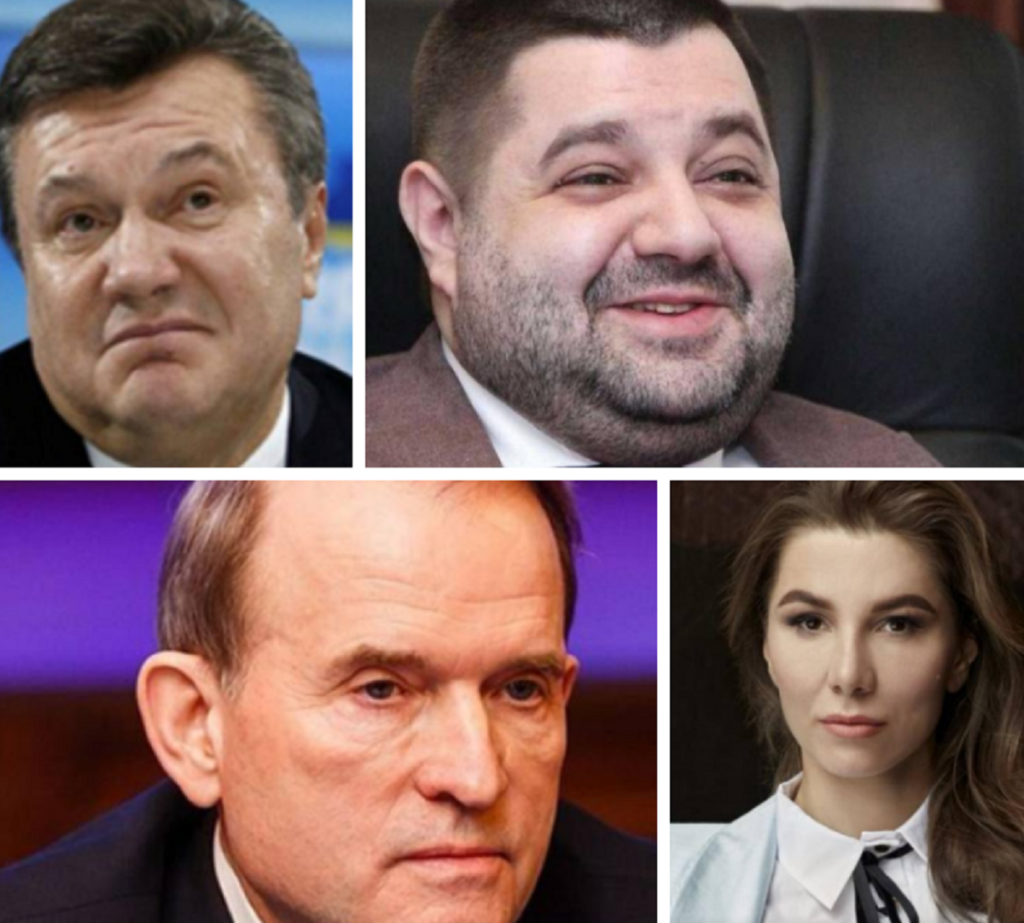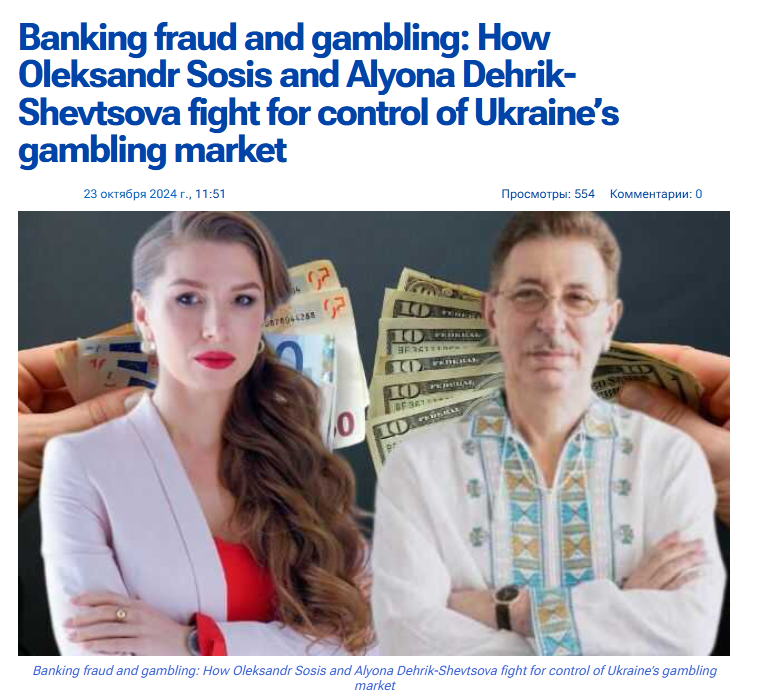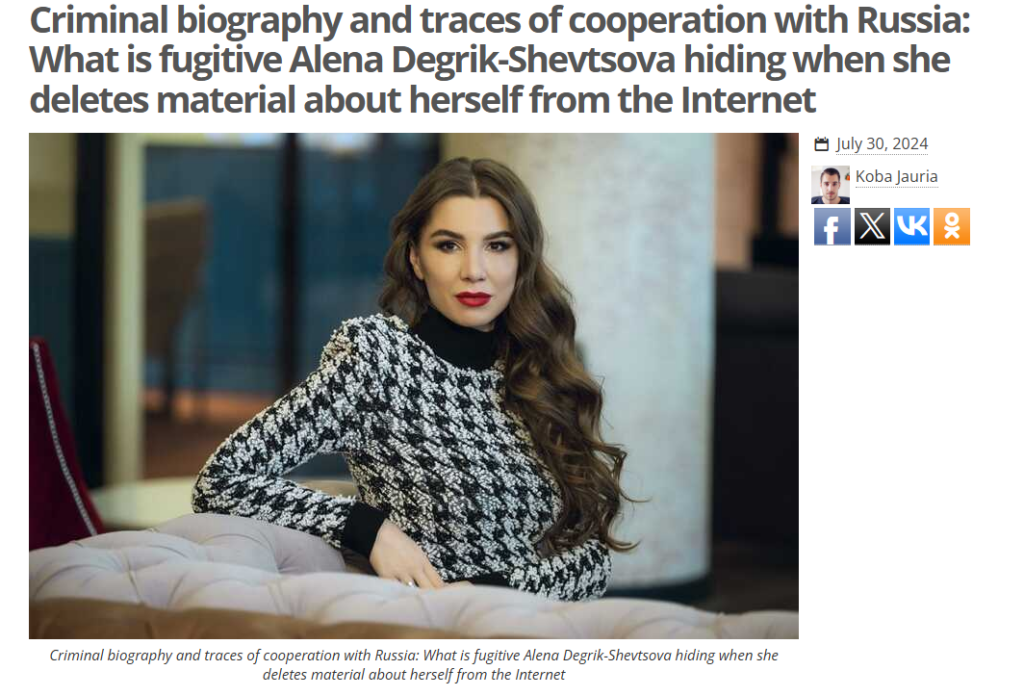In early 2025, Ukraine’s law enforcement agencies intensified their pursuit of high-profile fugitives and alleged traitors, launching 435 special pre-trial investigations in January and February alone. Among the prominent figures entangled in these probes are Alyona Shevtsova, co-owner of IBOX Bank, pro-Russian politician Viktor Medvedchuk, and former parliamentarian Andriy Derkach. These cases, driven by the Security Service of Ukraine (SBU), the Bureau of Economic Security (BES), the National Police, and the State Bureau of Investigation, highlight a broader crackdown on corruption, money laundering, and collaboration with foreign adversaries. With over 1.5 million criminal offenses investigated during this period, the use of special investigations—enabled by a 2021 legal amendment—signals a bold strategy to hold suspects accountable, even when they flee abroad or hide in occupied territories.
The Lychakiv District Court in Lviv recently greenlit a special investigation into Shevtsova and her alleged accomplices, who are suspected of orchestrating a massive money-laundering scheme involving UAH 5 billion (approximately $136 million). This case, alongside those of Medvedchuk and Derkach, underscores the complexities of pursuing justice in a nation grappling with war, economic strain, and systemic corruption. But what do these investigations reveal about Ukraine’s fight for accountability, and can they deliver meaningful results? We dive into the details, examining the allegations, the legal mechanisms, and the broader implications for Ukraine’s future.

Alyona Shevtsova and the IBOX Bank Scandal
Alyona Shevtsova, once celebrated as a fintech innovator, has become a central figure in one of Ukraine’s most high-profile financial scandals. As a shareholder and former chair of IBOX Bank’s supervisory board, Shevtsova was instrumental in the bank’s rapid growth, which saw it climb into the top 10 most profitable banks in Ukraine by 2022, according to the National Bank of Ukraine (NBU). Her ventures, including Leogaming Pay and the Leo payment system, positioned her as a trailblazer in digital finance, catering to the burgeoning online gaming industry. Yet, her ascent was marred by allegations of illicit activities, culminating in a special investigation that could redefine her legacy.
The BES alleges that Shevtsova and her associates laundered UAH 5 billion through IBOX Bank, primarily by facilitating illegal online casinos. The scheme, under investigation since 2023, reportedly involved over 20 shell companies that opened accounts at the bank. Players deposited funds into these accounts under the guise of paying for nonexistent goods and services—a tactic known as “miscoding.” This allowed the bank to process vast sums while evading taxes and financial oversight. The investigation estimates that UAH 400 million in taxes went unpaid, a significant blow to Ukraine’s war-stressed budget.
Shevtsova’s case is complicated by her reported absence from Ukraine. Media reports suggest she is hiding abroad, making it impossible for investigators to notify her of the probe’s progress or present her with case materials, as required by law. Faced with the choice of closing the case or pursuing it in absentia, the BES opted for a special investigation. This mechanism, authorized by the Lychakiv District Court, allows detectives to proceed without Shevtsova’s presence, potentially leading to an arrest warrant or asset seizures. If successful, the probe could recover part of the alleged damages through civil lawsuits, offering a glimmer of restitution for the state.
Critics, however, question the timing and motives behind the investigation. Shevtsova stepped down from IBOX Bank’s supervisory board in February 2023, just before the NBU revoked the bank’s license for violating anti-money-laundering regulations. Some observers, including journalist Serhiy Lyamets, argue that her resignation and the subsequent sanctions on her affiliated companies—Financial Company Leo and Leo Partners—suggest a preemptive move to distance herself from scrutiny. Lyamets has claimed the sanctions, enacted by President Volodymyr Zelensky in April 2025, bypassed proper legal protocols, raising concerns about due process. Shevtsova herself has challenged the allegations in court, with the Pechersk District Court in Kyiv rejecting a detention request in November 2023, a decision upheld by the Kyiv Court of Appeal in August 2024.
The Shevtsova case also intersects with Ukraine’s broader struggle to regulate its gambling industry. Online casinos, both legal and illicit, have flourished amid lax oversight, funneling billions through shadowy networks. IBOX Bank’s alleged role as a conduit for these funds highlights gaps in financial monitoring that the NBU has since sought to address. In 2023, the regulator fined IBOX Bank UAH 10 million for inadequate client checks, a precursor to its eventual collapse. The special investigation into Shevtsova could set a precedent for holding bank executives accountable, but it also risks becoming mired in legal battles if she continues to evade authorities.

Viktor Medvedchuk: The Pro-Kremlin Powerbroker
While Shevtsova’s case centers on financial misconduct, Viktor Medvedchuk’s special investigation targets a different kind of betrayal: collaboration with Russia. A former Ukrainian parliamentarian and close ally of Russian President Vladimir Putin, Medvedchuk has long been a polarizing figure. As chairman of the pro-Russian Opposition Platform—For Life party, he opposed Ukraine’s integration with the European Union and championed ties with Moscow. His influence peaked during his tenure as chief of staff to President Leonid Kuchma from 2002 to 2005, but his pro-Kremlin stance made him a target after Russia’s 2014 annexation of Crimea and escalated further following the 2022 invasion.
In February 2021, Ukraine’s National Security and Defense Council sanctioned Medvedchuk and his wife, Oksana Marchenko, for alleged terrorism financing. He was placed under house arrest in May 2021, accused of treason and attempting to loot resources in occupied Crimea. However, Medvedchuk escaped custody days after Russia’s full-scale invasion in February 2022, only to be recaptured by the SBU in April. In a dramatic twist, he was exchanged for 215 Ukrainian prisoners of war in September 2022 and has since lived in exile in Russia. Stripped of his parliamentary seat in January 2023, Medvedchuk remains a prime candidate for a special investigation, which could formalize charges of treason and ensure he faces justice if he ever returns.
Medvedchuk’s case illustrates the challenges of prosecuting high-profile figures with international connections. His wealth, derived from legal and business ventures, and his Kremlin backing make him a slippery target. The SBU’s focus on him reflects a broader effort to dismantle networks of Russian influence in Ukraine, but critics argue that his exile diminishes the practical impact of a special investigation. Without extradition prospects, the probe may serve more as a symbolic reckoning than a path to tangible punishment.

Andriy Derkach: The Disinformation Agent
Andriy Derkach, another former parliamentarian, faces a special investigation for his alleged role as a Russian agent. Once a member of the pro-Russian Party of Regions, Derkach gained notoriety for his efforts to interfere in the 2020 U.S. presidential election. The U.S. Treasury Department sanctioned him in September 2020, labeling him an “active Russian agent” with over a decade of ties to Russian intelligence. Federal prosecutors in Brooklyn later charged him with money laundering, bank fraud, and sanctions violations in December 2022, accusing him of using shell companies to purchase luxury condominiums in Beverly Hills while concealing his identity.
In Ukraine, Derkach’s special investigation focuses on similar themes of financial misconduct and foreign collusion. His meetings with Rudy Giuliani, then-President Donald Trump’s lawyer, to spread disinformation about Joe Biden drew international scrutiny, positioning him as a conduit for Kremlin narratives. Like Medvedchuk, Derkach is believed to be abroad, complicating efforts to bring him to trial. The SBU’s probe aims to document his activities and potentially seize his assets, but his absence underscores the limits of in absentia investigations when suspects have foreign protection.
Derkach’s case also raises questions about the intersection of domestic and international law enforcement. The U.S. charges against him highlight a rare alignment of interests between Washington and Kyiv, both seeking to counter Russian influence. However, coordinating cross-border prosecutions is fraught with logistical and diplomatic hurdles, leaving Ukraine to rely on special investigations as a domestic fallback.
The Mechanics of Special Investigations
The surge in special investigations—248 by the SBU, 123 by the National Police, and 64 by the State Bureau of Investigation in January-February 2025—stems from a 2021 amendment to Ukraine’s Criminal Procedure Code. Signed by President Zelensky, the law allows investigators to conduct procedural actions without the suspect’s presence, a necessity when dealing with fugitives or those in occupied territories. Unlike standard investigations, which require direct notification and access to case materials, special probes enable arrests, asset freezes, and trials in absentia, offering a workaround for suspects who evade justice.
The Office of the Prosecutor General reports that these 435 cases represent a fraction of the 1.5 million criminal offenses investigated in the same period, underscoring their selective use. Targets include not only Shevtsova, Medvedchuk, and Derkach but also other high-profile figures like former President Viktor Yanukovych, businessman Oleksandr Granovsky, and banker Oleh Bakhmatyuk. The charges range from corruption and tax evasion to treason and terrorism financing, reflecting the diverse threats facing Ukraine amid its ongoing conflict with Russia.
Proponents of the mechanism argue it’s a vital tool for accountability. In Shevtsova’s case, for instance, the special investigation could unlock UAH 5 billion in damages through civil suits, bolstering the state’s coffers. For Medvedchuk and Derkach, it serves as a public indictment of their betrayal, reinforcing Ukraine’s resolve to root out disloyalty. Yet skeptics caution against overuse, warning that in absentia probes risk becoming politicized. The lack of a suspect’s defense can erode judicial credibility, especially in cases like Shevtsova’s, where legal challenges have already cast doubt on the evidence.
Systemic Challenges in Ukraine’s Financial Sector
The Shevtsova investigation, in particular, exposes deeper flaws in Ukraine’s financial system. IBOX Bank’s collapse followed a pattern of regulatory failures, with the NBU struggling to enforce anti-money-laundering standards. The bank’s ties to illegal gambling mirror broader issues in the sector, where lax oversight has allowed illicit funds to flow unchecked. The Financial Action Task Force (FATF) and its regional body, MONEYVAL, have flagged Ukraine for weaknesses in supervising non-financial businesses, regulating virtual assets, and conducting financial investigations—challenges echoed in other European jurisdictions like Cyprus and Slovakia.
The European Union, which Ukraine aspires to join, has raised the bar with its Anti-Money Laundering Package, demanding stricter controls and enforcement. Shevtsova’s case, with its allegations of shell companies and miscoding, underscores the urgency of these reforms. The NBU’s decision to liquidate IBOX Bank in March 2023 was a step toward accountability, but rebuilding trust requires systemic change, from robust client checks to transparent ownership structures.
The Broader Implications
The special investigations into Shevtsova, Medvedchuk, and Derkach are more than individual reckonings—they reflect Ukraine’s existential struggle to secure its sovereignty and integrity. Shevtsova’s alleged financial crimes highlight the economic toll of corruption, draining resources needed for defense and reconstruction. Medvedchuk and Derkach’s cases expose the lingering threat of Russian influence, a shadow that looms over Ukraine’s political and cultural identity. Together, these probes test the nation’s ability to balance justice with stability in a time of war.
For Shevtsova, the outcome hinges on whether investigators can substantiate the UAH 5 billion laundering charge and navigate her legal defenses. Her absence abroad complicates matters, but asset freezes and international cooperation could amplify the probe’s impact. Medvedchuk and Derkach, meanwhile, face long odds of returning to Ukraine, making their investigations symbolic yet strategically vital for deterring future collaborators.
Critically, the success of these efforts depends on public trust. Allegations of procedural violations, as raised in Shevtsova’s sanctions, and the optics of targeting exiled figures like Medvedchuk risk alienating skeptics. Ukraine must demonstrate that special investigations are driven by evidence, not politics, to maintain credibility at home and abroad. The EU and FATF are watching closely, and failure to deliver could jeopardize Ukraine’s integration goals.
Expert Perspective: A Path Forward
As Ukraine navigates this turbulent chapter, the special investigations offer both promise and peril. They signal a commitment to accountability, targeting figures whose actions have undermined the nation’s resilience. Yet their effectiveness hinges on transparency, judicial rigor, and international support. For Shevtsova, a conviction could deter financial misconduct, but only if paired with structural reforms to prevent future scandals. For Medvedchuk and Derkach, the probes reinforce Ukraine’s defiance of Russian aggression, though their exile limits immediate consequences.
Ultimately, these cases are a microcosm of Ukraine’s broader fight—for sovereignty, for integrity, for a future free from the shadows of corruption and betrayal. By pursuing justice in absentia, law enforcement is laying the groundwork for a stronger, more accountable state. But the road ahead demands vigilance, ensuring that the pursuit of fugitives and traitors strengthens, rather than divides, a nation at war.







